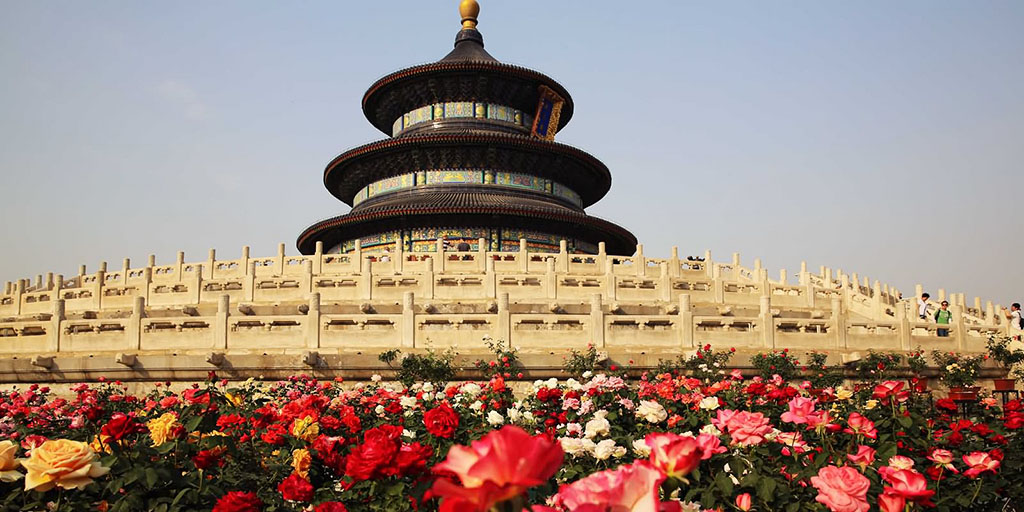If you’re planning your first trip to Beijing and aren’t quite sure what to expect, here’s our top tips for all you need to know for the most successful trip to Beijing. With these in mind, you can enjoy your trip to the fullest. It is very easy to travel around the city –traffic aside. Taxis are plentiful and cheap, and Beijing has a good subway system that has expanded rapidly and now reaches more places. Stops are announced in both English and Chinese. Public buses can be a challenge because street signs are not often written in English and bus drivers are unlikely to be conversational in any foreign language. Just skip them. Renting a car can be difficult and traffic and roads can be quite challenging, so driving on your own is not recommended. What you could do though is to hire a car and a driver which is not that expensive and is a good alternative for getting around.
Trip to Beijing
Best Time to Visit
The best timing to visit Beijing is in September and October (spring or early fall). The weather is mild and there are more sunny days. Avoid going during winter as the weather gets very cold but also don’t go during July to avoid the extreme heat wave, humidity and dust storms. Pollution is an issue the year through but gets worse during winter. If your trip is during the Chinese New Year or the National Day you will possibly find difficulty to book hotels, tours, even transportation.
Saving on Lodging
The busiest season is spring and fall. Check for deals –usually, weekend stays are cheaper and if you are staying more than one night there is a possibility of getting some free perks or visit during the low season.
Language
It is advisable to print out the name of the hotel you are going to stay, address and phone number and have it along. English is not widely spoken and this will save you time and trouble upon your arrival. Somebody you come across and you want to ask or the taxi driver might know understand English.
First Aid Kit Packing List
See your physician and ask for your prescription medication just in case you are questioned in Customs. Headache medication such as Tylenol or Advil, Diarrhea/nausea medication, Diamox, Band-aids, Anti-bacterial ointment, Alcohol swabs, Hydrogen peroxide, Cotton swabs, bandages, nail scissors.
Security and Keeping Details Safe
Scan and store your passport, passport photos and paper tickets (if not the e type) in, emergency “lost card” telephone numbers or where to go when your Credited card or ATM card is lost or Stolen in your e-mail account. This way, if you lose everything, you will still have the immediate access to this important information. Also carrying too much money, all in one place is dangerous; it necessary to spread it around your pockets or keep it in a safe box in your hotel.
Trip to Beijing
Packing Essentials
Carry packets of tissues and antibacterial hand wipes with you –toilet paper is not common in Chinese public restrooms. A small flashlight with extra batteries is also useful. Chinese pharmacies can be limited, so take adequate stocks if you are picky about lotions and potions. Beijing is quite dry, so moisturizer is a must. The choice is also limited for feminine-hygiene products, so bring along extra or pay outrageous prices in the expat supermarkets.
Clothes to Pack
For summer –a dusty and hot season have in mind, you can carry some light/loose summer dresses, shorts and short-sleeve shirts. They would be awesome and come in handy for any day. There is little risk of offending people with your dress, no matter how casual. For spring and fall a light raincoat would be useful, and for winter a thermal long underwear is a lifesaver. An overcoat, scarf, at and gloves will help keep icy winds at bay. Try to travel as light as possible and in case you need something, the city is a shopper’s paradise. If a bulky jacket does not fit in your luggage, you can buy a cheap one upon arrival.
Shoes
Avoid wearing flip-flops as Beijing streets aren’t the cleanest. If you do wear it you’ll likely find the bottom of your feet dirty by the end of the day. Wear shoes where the bottom of your feet will be covered when you walk, like sandals or sneakers.
Trip to Beijing
Dress Code
If you are visiting religious sites show respect. Authorities won’t let you enter, so have a scarf to cover your shoulders and avoid shorts or mini.
From the Airport to Beijing Centre
The best and fastest way is by taxi but be prepared to encounter some pretty bad traffic especially if you will be travelling during peak hour time.
Visa
You will need a valid visa and nothing else to enter the county aside from a passport that is valid for at least six months after the date of entry. You are required to have your passport along at all times through the trip and for safety reasons carry a photocopy of it when you are out and store it in the safe at the hotel you are staying.
Vaccination
If you don’t plan on venturing outside Beijing you don’t need to get any special vaccinations or take medication.
Custom Duties
Except for the usual prohibitions which stand for every destination, the same stands for this country, but avoid carrying religious, pornographic or political items, books and articles or pictures on Tibet. Customs officials rarely search visitors but if you carry in several thousands of dollars, you have to fill in the customs declaration form and declare it upon arrival. You won’t have any problem carrying your laptop or camera even GPS equipment.
Trip to Beijing
Electricity
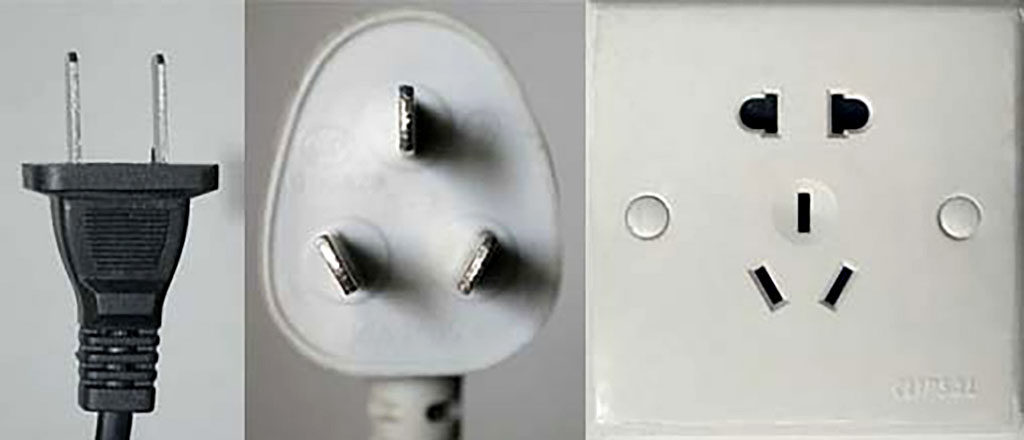 China runs on 220 volts with a variety of plug types. Most common are the two-pronged straight plug (U.S. style) and three-pronged angled (Australian style). If your appliance is not rated for 220 volts, such as a hairdryer using 110 volts, don’t plug it in or you will ruin it. Most hotels have hair dryers or will loan you one.
China runs on 220 volts with a variety of plug types. Most common are the two-pronged straight plug (U.S. style) and three-pronged angled (Australian style). If your appliance is not rated for 220 volts, such as a hairdryer using 110 volts, don’t plug it in or you will ruin it. Most hotels have hair dryers or will loan you one.
Adaptors & Converters
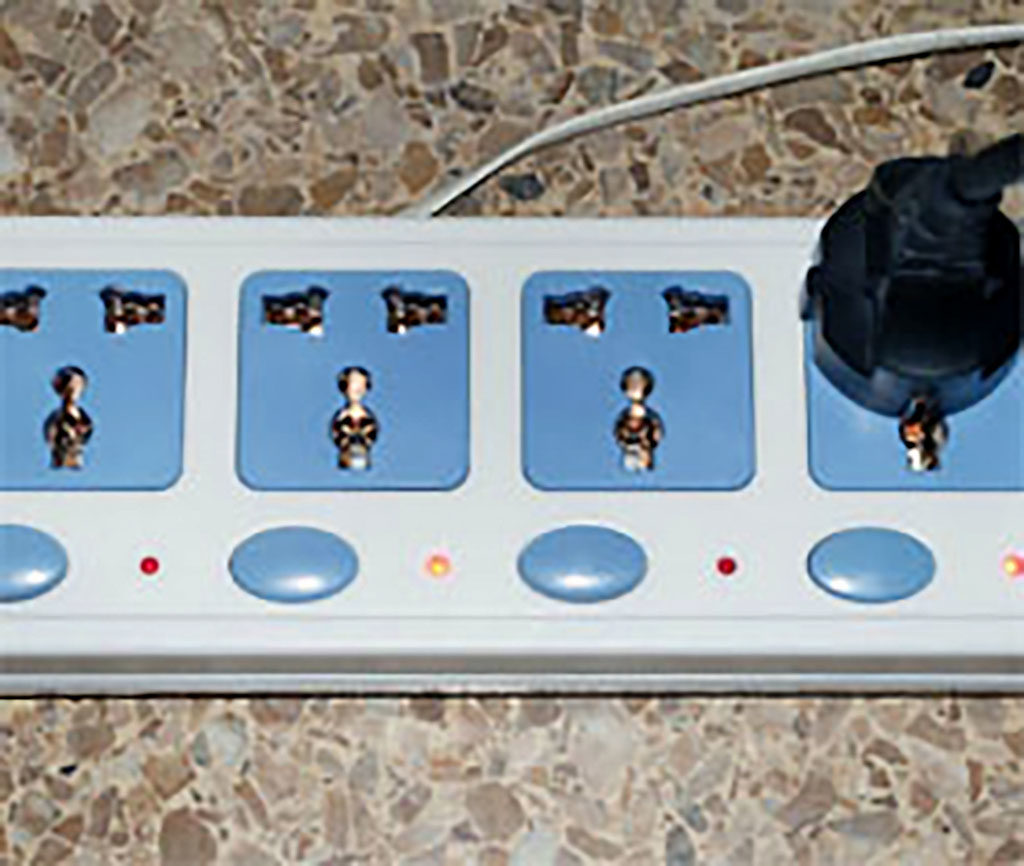 Make sure you understand the difference between a plug adaptor and a power converter. If your plug is not the right shape but rated for 110 to 220 volts, you just need an adaptor to get your plug to physically fit in the wall. If your appliance is rated for 110 volts only and you want to plug it in, you will need a power converter which gives you the right voltage and amperage for your appliance.
Make sure you understand the difference between a plug adaptor and a power converter. If your plug is not the right shape but rated for 110 to 220 volts, you just need an adaptor to get your plug to physically fit in the wall. If your appliance is rated for 110 volts only and you want to plug it in, you will need a power converter which gives you the right voltage and amperage for your appliance.
Trip to Beijing
Money
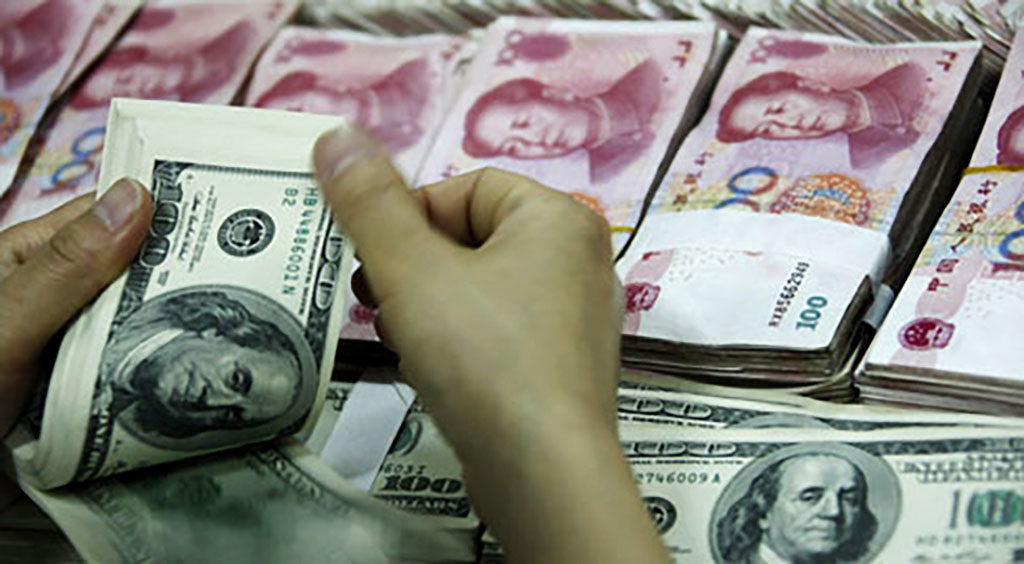 The best place to exchange foreign currency in Beijing is the Beijing airport’s arrival area: just before you exit the arrivals gate and enter the terminal. On the side, there is a Bank of China.
The best place to exchange foreign currency in Beijing is the Beijing airport’s arrival area: just before you exit the arrivals gate and enter the terminal. On the side, there is a Bank of China.
This Bank of China booth does not charge for travelers’ check and does not charge other fees for the transaction
Once you leave the arrivals gate you cannot re-enter!
Trip to Beijing
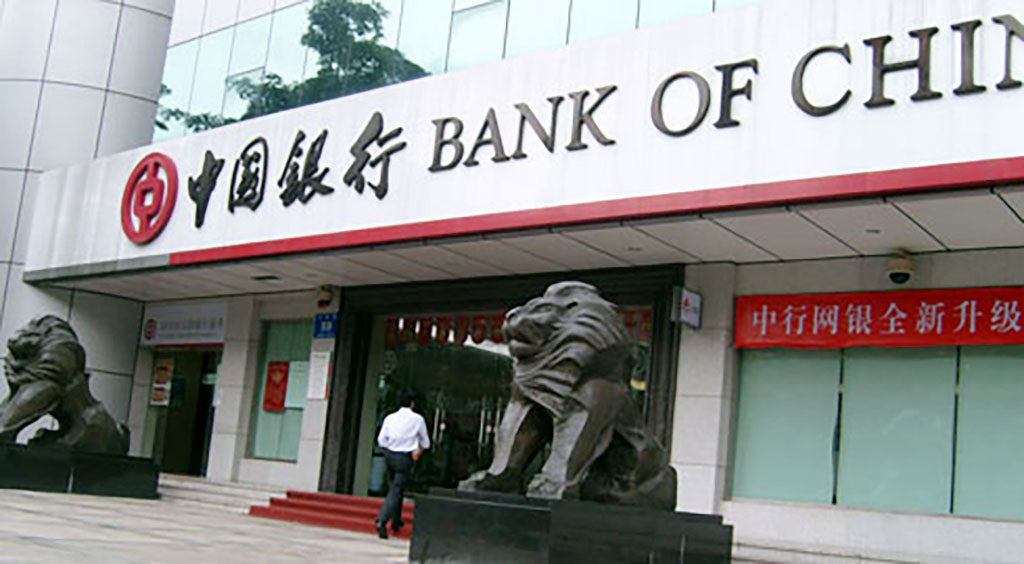 There are extra charges for exchange at all banks, including the Bank of China, once you step out of the arrivals gate. Banks in China will exchange foreign currency from Monday to Friday only, not on the weekends. All banks are open 7 days/week but will not do a foreign exchange transaction.
There are extra charges for exchange at all banks, including the Bank of China, once you step out of the arrivals gate. Banks in China will exchange foreign currency from Monday to Friday only, not on the weekends. All banks are open 7 days/week but will not do a foreign exchange transaction.
Exchange in ATM’s or Hotels
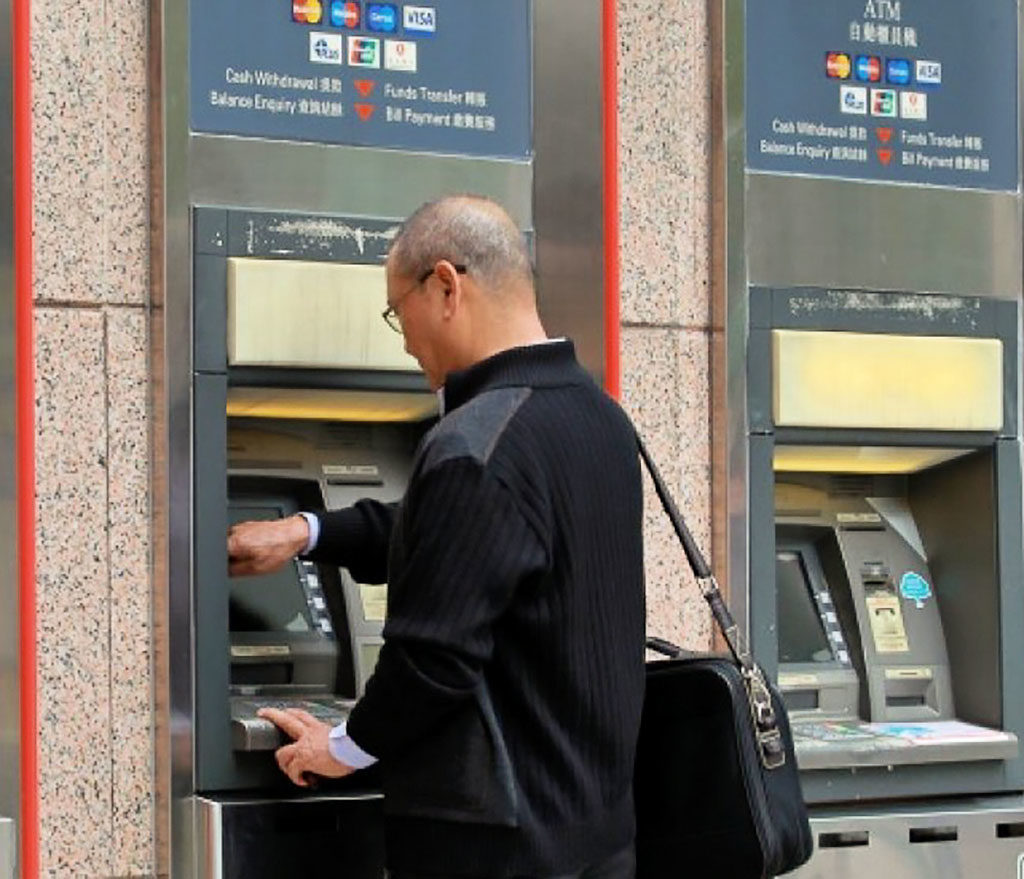 If you do not want to line up and schedule for money exchange in the Bank of China, the ATMs and your hotels are good options.
If you do not want to line up and schedule for money exchange in the Bank of China, the ATMs and your hotels are good options.
- ATM machines are everywhere and you can choose to operate in English. There are some banks at the airport, if you exchange not more than 500$, will charge 30RMB for service fee there, except for the Bank of Agriculture.
- ATMs are also widely available, although only some will work with international cards. Look for machines with your card system’s logo. Bank of China machines accept most international cards and seem to be reliable and easy to use.
- Exchange rates and fees are controlled and the same everywhere within China, so usually it is the easiest way to change money at the airport or in your hotel. There are several major Chinese Banks and they are open 24 hours a day.
- Save receipts as these are needed to change Renminbi (yuan) back into foreign currency. Without the receipt WHERE and HOW you got the Yuan, they will not exchange your country’s currency for you.
Water and Food
Tap water in Beijing is safe only for brushing teeth. Drink only bottled water and avoid public fountains or beverages with ice. Food should be thoroughly cooked and avoid salads from street markets. There is no problem enjoying fruit or other local products sold from street stands, but any fruit that can’t be peeled should be cleaned with bottled water before eating.
Tipping in Restaurants
At fine restaurants, you tip if satisfied with the service. You can leave small changes to your waiter, or give one or two dollars as a tip. It depends entirely on how you rate the service. Leave more if you are happy with the service or none if you are not.
Local Guides
Actually, you can do without them as it is easy to get around by taxi or by public transportation. An added plus is that locals are friendly and always willing to help. Imagine returning home and tell your friends and family that you discovered that amazing backstreet boutique or amazing restaurant all by yourself.
Feel free to add more to our list and give us some of your highlights!




